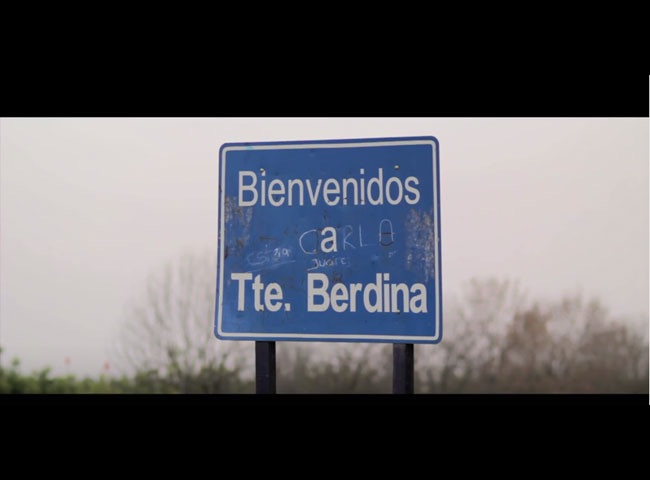Toponimia
-
Réalisé par Jonathan Perel • Écrit par Jonathan Perel
-
Argentine • 2015 • 82 minutes • HD • Couleur
- Réalisation :
Jonathan Perel - Écriture :
Jonathan Perel - Image :
Jonathan Perel - Son :
Jonathan Perel - Montage :
Jonathan Perel
- Production (structure) :
Jonathan Perel - Ayant droit :
Jonathan Perel
- N° ISAN :
non renseigné
Résumé
De la toponymie, branche de la linguistique, à l’espace politique, les liens peuvent être inattendus. Telle est l’entreprise de dévoilement de nouveau film de Jonathan Perel, qui fait de son cinéma un outil d’exploration et de documentation précise des traces des dictatures passées en Argentine. Nous sommes dans la province de Tucuman, au nord de l’Argentine, région emblématique où fut signé en 1816 le premier acte d’indépendance de l’Amérique du Sud, et où se déroula l’"Opération Indépendance" dès 1974, répression sanglante contre la guérilla. Répression qui eut pour auxiliaire singulier l’urbanisme. Comment ? Par l’établissement d’une série de villages construits à neuf selon un schéma directeur identique, et dont la structure porte le projet politique. Perel déplie systématiquement ces espaces, les uns après les autres : la place, l’inscription de sa devise, le monument dédié à celui auquel elle doit son nom, combattants morts dans la lutte contre la guérilla, l’église, sans omettre l’ordinaire de ses logements et de ses rues. Inquiétante répétition que dévoile la rigueur du dispositif, en quatre chapitres eux aussi à la structure identique, ouvrant chaque fois sur les documents officiels fondateurs de ces villages, et filmant le morne des lieux, aujourd’hui. Systématisme d’où sourd l’effroi du projet, d’un lieu à l’autre, mené à rythme de métronome, dessinant le quadrillage du paysage, ses survivances et son épuisement.
(Nicolas Féodoroff, FIDMarseille 2015)
From toponymy, a branch of linguistics, to politics, the links can be quite unexpected. These are which are sought to be revealed in the new film by Jonathan Perel who uses his filmwork as a tool to explore and accurately document the marks left by previous dictators of Argentina. We are in the province of Tucuman, in the north of Argentina, an emblematic region where the fi rst Act of Independence in South America was signed in 1816 and where the “Operation Independence” took place in 1974, during which the guerillas’ insurgence was violently repressed. A repression which was even extended to the urban areas. How? By setting up a series of new villages built according to the same guidelines, and whose structures adher to a specific political project. Perel systematically unfolds these spaces, one after the other: the place, the inscription of its identity, the monument dedicated to the person whose name it bears, fighters who died during the struggles with the guerillas, the church, yet without ignorng its ordinary housing and streets. A disturbing repetition which reveals in four chapters identical to one another the harshness of the system, each one opening with the offi cial documents of the founding of these villages, filming the gloominess of the places today. A systematic approach that deafens the fearfulness of the project, from one place to the next, rhythmed like a metronome, drawing upon the layout of the landscape, its relics and exhaustion.
(Nicolas Féodoroff, FIDMarseille 2015)
Mot(s)-clé(s) thématique(s)
Sélections et distinctions
- 2016 • E Trudo Verdade / It's All True International Documentary Film Festival • Sao Paulo (Brésil) • Sélection
- 2016 • Kino Arsenal • Berlin (Allemagne) • Sélection
- 2015 • FIDMarseille - Festival International de Cinéma de Marseille • Marseille (France) • Compétition internationale - Prix Camira
Comment avoir accès au film ?
-
Édition DVD
- Il n'existe pas d'édition DVD à notre connaissance
-
Accès VOD
- Il n'existe pas d'accès en VOD à notre connaissance
- Distribution
- Aide sur les moyens d'accéder à un film
